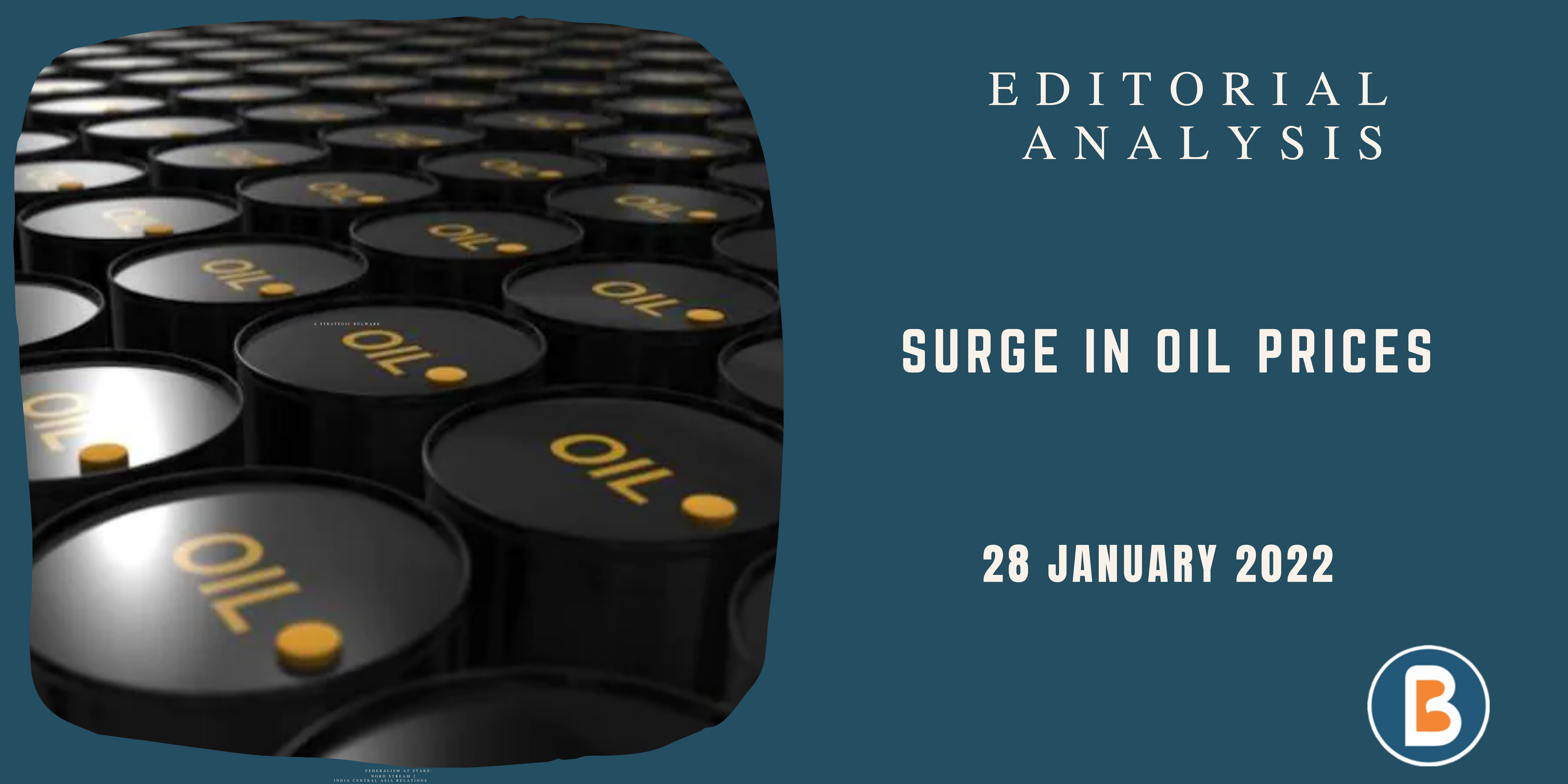Surge In Oil Prices
Context:
- Rising tensions between Russia and Ukraine are leading to a surge in oil prices, with Brent breaching the $90-a-barrel mark overnight on Thursday the first time since 2014.
- Some analysts predict oil prices to hit the $100-110-mark per barrel in the near future as prospects of supply disruptions and rising demand support prices.
- Rates have surged sharply from a low of $65.88 on December 2, 2021, and if the prices continue to rise, it will put a lot of pressure on both the Central and state governments to review taxes. The spike also impacts assumptions on the key metric that goes into Budget formulation.
Background:
- Crude oil prices have risen sharply since the beginning of the year as a surge in Covid-19cases around the world owing to the Omicron variant of the novel coronavirus has not lowered demand for crude oil in line with expectations.
- Geopolitical tension in the Middle East and fresh tensions between Russia and Ukraine are leading to speculations of supply disruptions.
- Key oil-producing countries have also kept increasing crude oil supplies despite rising demand. OPEC+ had agreed to sharp cuts in supply in 2020 owing to Covid-induced travel restrictions, but the organisation has been slow to boost production since then.
Impact on rising oil prices on Budget and inflation:
- The Budget for this year has assumed that oil prices will hover around the $65-per-barrel mark.
- Between April and September, oil prices traded largely in the range of $60-75 per barrel.
- In October, it rose to $86 per barrel, before sliding down to $65.86 per barrel again. Prices have steadily risen since then to touch a post-Covid all time high of $90.5 on Wednesday.
- Not only do rising prices feed into inflation, but also increase the amount of LPG and kerosene subsidy the government is required to pay.
- However, on the positive side, government revenues on taxes of oil and related products have also been rising over the last two years.
- The country’s retail inflation, which is measured by the Consumer Price Index, has already risen to a five-month high of 5.59 per cent in December.
- Wholesale price index-based inflation rose to 13.56 per cent during the same month.
Conclusion:
- High inflation will force the government to cut taxes on oil and related products, especially since rising prices are a key factor ahead of upcoming Assembly elections in five states.
- “Oil prices are a big factor in the Budget that will be presented next week and the overall fiscal math of India as it imports more than 85 per cent of its crude requirements.
- The Oil import bill is already up by more than 70 per cent from last year and it affects the balance of payments adversely.
- Oil marketing companies haven’t increased retail prices for the last 80 days due to the upcoming polls and given the under recovery that is already built in, the Union Finance Minister may not have the headroom to increase excise duty. She should rather build in a provision for a cut in case the oil prices hit the three-digit mark,”
Source: THE HINDU.




